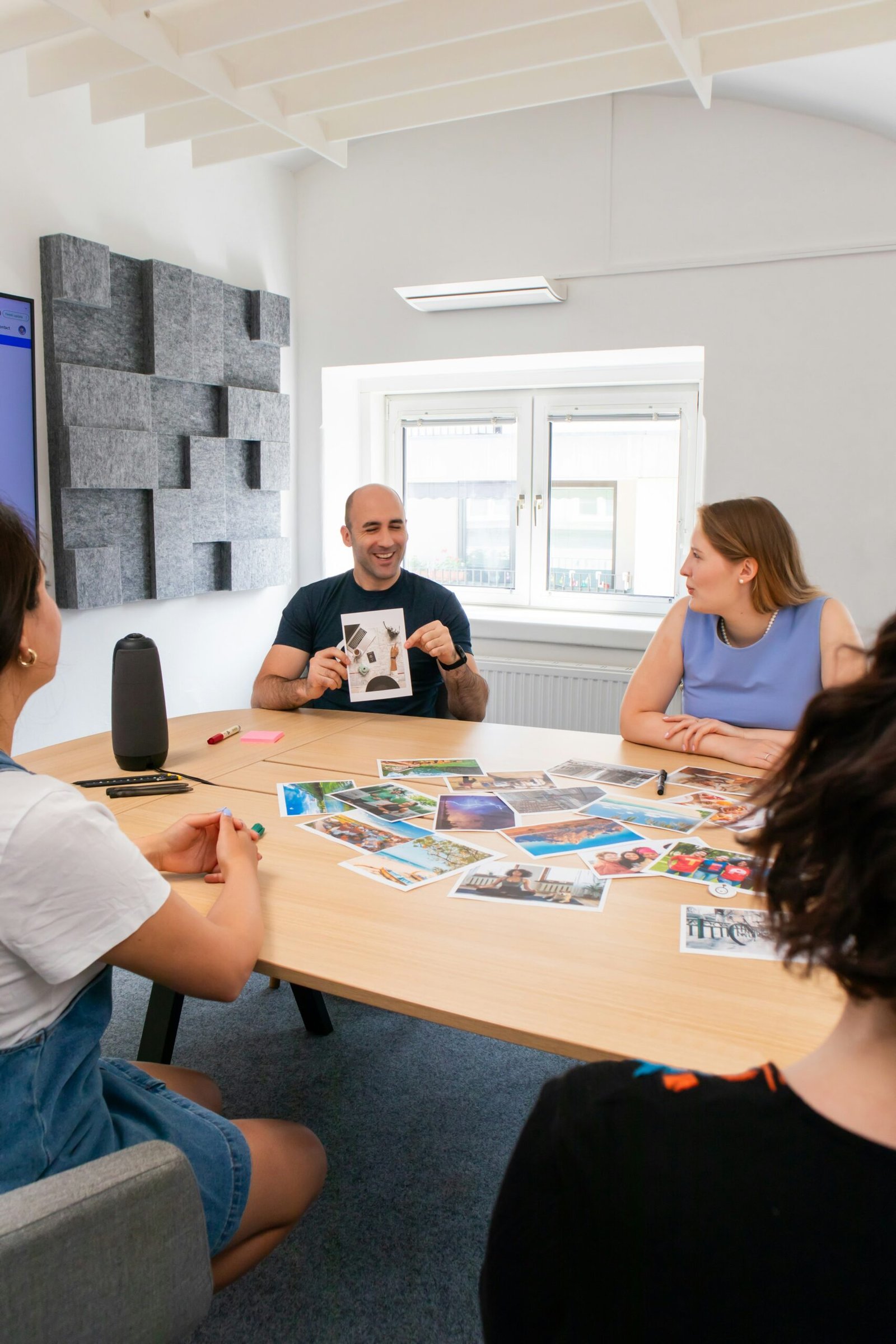“`html
Introduction to Lifelong Learning
Lifelong learning is the ongoing, voluntary, and self-driven quest for knowledge, undertaken for both personal and professional growth. Unlike traditional forms of education confined to the early stages of life, lifelong learning encompasses all forms of learning activities throughout an individual’s life. This concept recognizes that learning does not cease upon the completion of formal education, but rather continues as a dynamic and perpetual process.
In today’s rapidly evolving world, the importance of continual learning cannot be overstated. The pace at which technology and global markets change necessitates that individuals remain adaptable and well-informed. Lifelong learning equips individuals with the tools to navigate these changes, fostering both personal development and professional competency. Whether through formal courses, online tutorials, reading, or hands-on experience, the pursuit of knowledge helps individuals stay relevant and competitive in their respective fields.
Moreover, lifelong learning extends beyond the professional realm, enriching personal lives through the acquisition of new hobbies, skills, and interests. This holistic approach to knowledge acquisition contributes to a well-rounded and fulfilling life, enhancing one’s ability to communicate, problem-solve, and engage with the world. By embracing lifelong learning, individuals not only advance their careers but also nurture their overall well-being and intellectual vitality.
In conclusion, the concept of lifelong learning highlights the necessity of continuous knowledge acquisition in a rapidly changing world. It transcends formal education, advocating for a lifetime of self-improvement and growth. As the landscape of careers and industries evolves, so too must our commitment to learning and development.
The Role of Lifelong Learning in Career Advancement
Lifelong learning plays a pivotal role in career advancement by equipping individuals with the skills and knowledge necessary to stay relevant in an ever-evolving job market. As industries transform and technological advancements continue to reshape the professional landscape, the importance of continuous education cannot be overstated. Engaging in lifelong learning enables professionals to adapt to new challenges and seize emerging opportunities, ensuring their career progression remains robust and dynamic.
One of the key benefits of lifelong learning is the ability to acquire new skills that are pertinent to one’s current role. For instance, a study by the World Economic Forum found that approximately 50% of all employees will need reskilling by 2025, highlighting the pressing need for ongoing education. By participating in workshops, online courses, and professional development programs, employees can enhance their skill sets, which not only helps them perform better in their existing positions but also makes them more competitive candidates for promotions and new job opportunities.
Additionally, lifelong learning fosters a mindset of growth and adaptability. For example, a case study involving IBM employees who engaged in continuous learning programs revealed that those who regularly updated their skills were 10% more likely to be promoted compared to their peers who did not. This statistic underscores the tangible impact that a commitment to learning can have on one’s career trajectory. Employers increasingly value employees who demonstrate a proactive approach to their professional development, as it signals a willingness to grow and contribute meaningfully to the organization’s success.
Moreover, lifelong learning can open doors to entirely new career paths. As professionals expand their knowledge base and explore different fields, they may discover interests and opportunities they had not previously considered. This can lead to career shifts that align more closely with their passions and goals, ultimately resulting in greater job satisfaction and personal fulfillment.
In conclusion, lifelong learning is a critical component of career advancement. By continuously acquiring new skills and knowledge, professionals can remain relevant in their roles, increase their chances of promotions, and uncover new career opportunities. The evidence is clear: investing in lifelong learning is not just beneficial but essential for sustained career growth and success.
Adapting to Technological Changes
The rapid pace of technological advancements has significantly impacted the job market, making it essential for professionals to stay abreast of new technologies. In an era where innovation is constant, the ability to adapt to technological changes is crucial for career development. Lifelong learning plays a pivotal role in this context, enabling individuals to remain competitive and relevant in their respective fields.
Industries such as healthcare, finance, and manufacturing have undergone substantial transformations due to technological innovations. In healthcare, the advent of telemedicine, electronic health records, and advanced diagnostic tools has revolutionized the way medical professionals deliver care. For instance, telemedicine has made healthcare more accessible, especially in remote areas, while electronic health records have streamlined patient information management. Healthcare professionals who engage in continuous learning are better equipped to integrate these technologies into their practice, improving patient outcomes and operational efficiency.
In the finance sector, the rise of fintech has disrupted traditional banking models. Technologies such as blockchain, artificial intelligence, and machine learning have introduced new ways of managing financial transactions, investments, and risk assessments. Financial professionals who pursue lifelong learning can keep pace with these developments, acquiring skills that enable them to navigate the complexities of modern financial systems and offer innovative solutions to clients.
Manufacturing has also seen a significant shift with the introduction of automation, robotics, and the Internet of Things (IoT). These technologies have enhanced production efficiency, quality control, and supply chain management. Workers who continuously update their skills through lifelong learning can operate and maintain advanced machinery, ensuring that manufacturing processes remain efficient and competitive.
Overall, the necessity for lifelong learning in adapting to technological changes cannot be overstated. By committing to ongoing education, professionals can not only keep pace with the evolving job market but also contribute to the advancement of their industries, driving innovation and growth.
Enhancing Soft Skills Through Lifelong Learning
Soft skills, encompassing attributes such as communication, leadership, problem-solving, and emotional intelligence, play a pivotal role in career development. These skills not only enhance personal efficacy but also significantly contribute to organizational success. Lifelong learning provides a structured and continuous approach to developing and refining these essential skills, thereby making individuals more effective and adaptable in the workplace.
Communication, for instance, is a fundamental soft skill that facilitates both interpersonal and organizational interactions. Through lifelong learning, individuals can engage in various training programs that focus on active listening, public speaking, and effective writing. Mastery in these areas ensures clear and concise exchange of information, fostering better collaboration and productivity within teams.
Leadership, another critical soft skill, benefits immensely from lifelong learning. Continuous education offers opportunities to explore different leadership styles, understand team dynamics, and develop strategic thinking. Courses on leadership development often include case studies, role-playing, and mentorship programs that enable aspiring leaders to cultivate their management capabilities and inspire their teams.
Problem-solving skills are indispensable in navigating the complexities of the modern workplace. Lifelong learning encourages individuals to adopt a proactive approach to challenges. Workshops and seminars focusing on critical thinking, analytical reasoning, and creative solutions equip professionals with the tools needed to tackle issues efficiently and innovatively.
Emotional intelligence, which involves the ability to recognize, understand, and manage one’s own emotions as well as those of others, is crucial for building strong workplace relationships. Lifelong learning initiatives, such as mindfulness training, empathy workshops, and conflict resolution courses, empower individuals to enhance their emotional intelligence. This, in turn, leads to improved interpersonal interactions and a more harmonious work environment.
Several specific programs exemplify the value of lifelong learning in enhancing soft skills. For instance, the Dale Carnegie Training emphasizes communication and interpersonal skills, while the Center for Creative Leadership offers courses on leadership development and emotional intelligence. Additionally, online platforms like Coursera and LinkedIn Learning provide a plethora of courses tailored to various soft skills, making continuous education accessible and flexible.
In essence, lifelong learning is instrumental in the continuous development of soft skills, thereby making individuals more versatile and proficient in their careers. By embracing a culture of ongoing education, professionals can ensure they remain competitive and capable in an ever-evolving job market.
Learning Opportunities Outside the Classroom
In today’s fast-paced and ever-changing professional landscape, lifelong learning has become a critical component of career development. Traditional education, while foundational, is no longer sufficient to keep pace with industry advancements and evolving skill requirements. As such, learning opportunities outside the classroom have emerged as vital resources for continuous professional growth.
Online courses have revolutionized the way individuals acquire new skills and knowledge. Platforms such as Coursera, Udemy, and LinkedIn Learning offer a vast array of courses across diverse fields. These courses are designed to be flexible, allowing professionals to learn at their own pace and on their own schedules. This flexibility is particularly beneficial for working individuals who need to balance their job responsibilities with their educational pursuits.
Workshops and seminars provide another valuable avenue for lifelong learning. These in-person or virtual events often focus on specific topics and offer intensive, hands-on experiences that can significantly enhance one’s expertise in a short period. Networking opportunities at such events can also lead to valuable industry connections and potential career advancements.
Webinars, similar to workshops and seminars, offer real-time learning experiences but with the added convenience of remote access. Participants can join from anywhere, making it easier to fit into a busy schedule. Webinars often feature industry experts who share insights and best practices, providing attendees with up-to-date information and trends.
Self-study remains a powerful method for personal and professional development. With the abundance of resources available online, including articles, e-books, and videos, individuals can tailor their learning experiences to their specific needs and interests. This method fosters a sense of autonomy and initiative, essential traits in the modern workforce.
The accessibility and flexibility of these learning opportunities make them ideal for professionals seeking to advance their careers without disrupting their current roles. By embracing these avenues, individuals can stay competitive and relevant in their fields, ensuring long-term career success.
The Role of Employers in Promoting Lifelong Learning
Organizations play a pivotal role in fostering lifelong learning among their employees. By providing access to training programs, companies can ensure that their workforce remains adept at navigating the ever-evolving professional landscape. Training initiatives, whether through in-house workshops or external online courses, allow employees to acquire new skills and stay updated with industry developments. This not only enhances individual career prospects but also contributes to the overall success of the organization.
Another significant measure is offering tuition reimbursement. Financial support for further education can be a strong motivator for employees to pursue advanced degrees or specialized certifications. This investment in employee education pays off by cultivating a highly skilled and knowledgeable workforce, capable of driving innovation and maintaining competitive advantage. Companies like Starbucks have successfully implemented such programs, providing tuition assistance for employees to complete their bachelor’s degrees.
Creating a culture of continuous improvement is also essential. Encouraging a mindset where learning is valued and integrated into daily operations can lead to substantial long-term benefits. This can be achieved through regular skill assessments, setting learning goals, and fostering an environment where knowledge sharing is encouraged. For instance, Google’s ‘20% Time’ policy allows employees to dedicate a portion of their work hours to pursue projects or learning opportunities of their interest, promoting creativity and professional growth.
Moreover, recognizing and rewarding learning achievements can reinforce the importance of lifelong learning within the organization. Acknowledging employees who pursue and complete learning initiatives can inspire others to follow suit. This could be through formal awards, public recognition, or linking learning outcomes to career advancement opportunities. Companies like IBM have effectively used digital badges to recognize employees’ completion of various learning modules, thereby motivating continuous professional development.
In essence, by actively promoting lifelong learning through various initiatives, employers can cultivate a more adaptable, skilled, and motivated workforce, ultimately driving organizational success and resilience in a rapidly changing world.
Overcoming Barriers to Lifelong Learning
In the pursuit of lifelong learning for career development, individuals often encounter several obstacles that can hinder their progress. Among the most common barriers are time constraints, financial limitations, and a lack of access to resources. However, with practical strategies and intentional planning, these challenges can be effectively addressed.
Time constraints are a significant hurdle for many individuals. Balancing work, family, and personal commitments can make it difficult to find time for learning. To overcome this, effective time management techniques are essential. Utilizing tools such as planners, calendars, and task management apps can help individuals prioritize their learning activities. Additionally, breaking learning into smaller, manageable segments can make it easier to integrate into a busy schedule. Setting specific, achievable goals and consistently dedicating small amounts of time each day to learning can lead to substantial progress over time.
Financial limitations also pose a considerable challenge. Traditional education and training programs can be costly, making it difficult for some individuals to pursue their learning goals. To mitigate financial barriers, seeking out affordable learning options is crucial. Many community colleges and online platforms offer courses at a fraction of the cost of traditional universities. Scholarships, grants, and employer-sponsored training programs can also provide valuable financial assistance. Furthermore, leveraging free online resources, such as webinars, podcasts, and open educational resources (OER), can offer high-quality learning opportunities without the financial burden.
A lack of access to resources, including educational materials and support networks, can also impede lifelong learning. To overcome this, individuals can take advantage of the wealth of free resources available online. Websites such as Coursera, edX, and Khan Academy provide access to a wide range of courses and learning materials. Joining professional networks and online communities can also offer support, mentorship, and opportunities for collaborative learning. Libraries, both physical and digital, are valuable sources of information and often provide free access to a variety of learning materials.
By implementing these strategies, individuals can effectively navigate the barriers to lifelong learning, thereby enhancing their career development and personal growth.
Conclusion: Lifelong Learning as a Strategic Career Investment
Lifelong learning has emerged as a pivotal element in career development, as underscored throughout this blog post. The dynamic nature of today’s job market necessitates continuous learning to stay competitive and relevant. Individuals who commit to lifelong learning are better positioned to adapt to evolving industry trends and technological advancements. This proactive approach not only enhances skill sets but also opens up new career opportunities.
The benefits of lifelong learning extend beyond professional advancement. It fosters personal growth, boosts confidence, and cultivates a mindset geared towards innovation and problem-solving. By embracing continuous education, professionals can bridge skill gaps, stay ahead of the curve, and contribute more effectively to their organizations. This ongoing commitment to learning also signals to employers a dedication to personal and professional excellence, making lifelong learners more attractive candidates for promotions and new roles.
Viewing lifelong learning as a strategic investment in your future success is crucial. It is an investment that pays dividends in the form of career resilience, job satisfaction, and personal fulfillment. The journey of lifelong learning can begin with small steps such as enrolling in courses, attending workshops, or simply staying informed about industry developments. Each step taken towards acquiring new knowledge and skills is a step towards securing a robust and adaptable career.
We encourage you to take the first step on your lifelong learning journey today. Whether you are just starting out in your career or looking to advance further, the pursuit of knowledge and skills will always be a valuable asset. Embrace the opportunities for learning and growth, and invest in your future success. The path of lifelong learning is a continuous one, filled with potential and promise.






